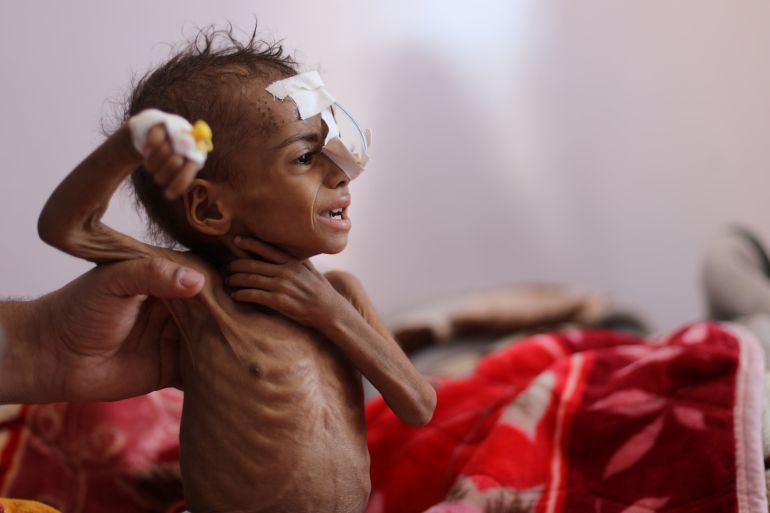Pope shares worries for Yemen war victims in New Year message
Conflict, which has seen increased violence in recent days, is causing ‘numerous innocent victims’, Christian leader says.

Pope Francis reappeared on Friday after chronic sciatic pain forced him to miss the Church’s New Year services, and made no mention of his ailment as he delivered his traditional appeal for world peace.
Francis highlighted in particular his worries about Yemen, which has been blighted by six years of violence that has pitted a Saudi Arabia-led coalition against the Iran-aligned Houthi movement.
Keep reading
list of 4 itemsPope Francis appoints first African American cardinal
Pope to make first-ever trip to Iraq in March: Vatican
Pope: Syria, Iraq, Yemen children should ‘touch all consciences’
At least 22 people were killed in an attack on Aden airport on Wednesday, which triggered a fresh round of coalition air raids.
“I express my sorrow and concern for the further escalation of violence in Yemen, which is causing numerous innocent victims,” Francis said. “Let us think of the children of Yemen, without education, without medicine, famished.”
The pope was unable to attend services on Thursday and again on Friday morning because of sciatica – a relatively common problem that causes pain along the sciatic nerve down the lower back and legs.
It was believed to be the first time since he became pope in 2013 that Francis, who turned 84 last month, has been prevented by health reasons from leading a major papal event.
However, he showed no sign of discomfort as he delivered a noon address and prayer, standing at a lectern in the library of the Vatican’s Apostolic Palace.
“Life today is governed by war, by enmity, by many things that are destructive. We want peace. It is a gift,” Francis said, adding that the response to the global coronavirus crisis showed the importance of burden-sharing.
“The painful events that marked humanity’s journey last year, especially the pandemic, taught us how much it is necessary to take an interest in the problems of others and to share their concerns,” he said.
The noon blessing is normally given from a window overlooking Saint Peter’s Square, but it was moved indoors to prevent any crowds gathering and limit the spread of COVID-19.
Shortly before Christmas, two cardinals in the pope’s entourage contracted the virus, raising fears that Francis, who rarely wears a mask, risked infection.
During Italy’s first lockdown in March, Francis initially delivered his Sunday Angelus prayers from the Vatican library instead of his usual window overlooking crowds on St Peter’s Square.
The pope has a risk factor for the coronavirus aside from his advanced age. When he was 21 years old in 1957, he suffered from severe pleurisy, requiring surgery to remove part of his right lung, according to biographer Austen Ivereigh.
The Vatican has not yet indicated when the pope may be vaccinated against COVID-19.